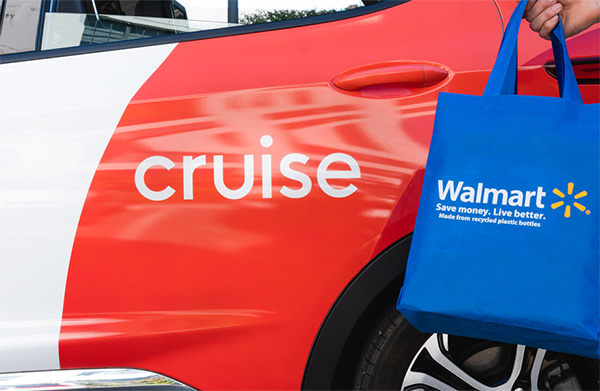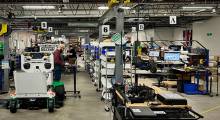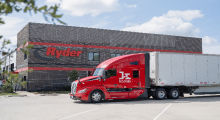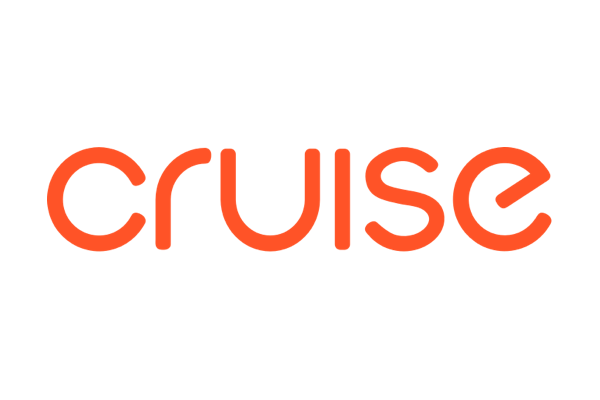The development of autonomous vehicles for transporting people or goods takes a lot of money, and who better to support driverless delivery than one of the largest retailers in the U.S.? Cruise LLC today said that several institutional investors and Walmart Inc. have joined its previously announced investment round, bringing the total capital raised to $2.75 billion at a valuation of more than $30 billion.
“This investment is a marker for us – it shows our commitment to bringing the benefit of self-driving cars to our customers and business,” stated John Furner, president and CEO of Walmart U.S. “We’re excited to join Cruise’s already impressive partner and investor ecosystem with the likes of GM, Honda, and Microsoft as we work towards pioneering this emerging technology.”
San Francisco-based Cruise has been developing electric, autonomous vehicles including the Origin ride-sharing vehicle. The company said it has been working for five years, with more than 2 million miles of real-world testing and 200,000 hours of simulation per day.
In November 2020, Cruise and Walmart partnered to launch a self-driving delivery pilot using Cruise’s all-electric fleet in Scottsdale, Ariz. Walmart said the funding reflects its commitment to reducing carbon emissions in response to climate change.
“What’s unique about Cruise is they’re the only self-driving car company to operate an entire fleet of all-electric vehicles powered with 100% renewable energy, which supports our road to zero emissions by 2040,” said Tom Ward, senior vice president of customer product at Walmart U.S.
“Self-driving cars will make transportation safer, cleaner, and more accessible for everyone,” said Dan Ammann, CEO of Cruise. “Making this happen requires a clear mission, world-class talent, great partners and a lot of capital.”
In December, Cruise said it had begun testing self-driving cars without safety drivers for robotic taxicab services in San Francisco, after receiving permission from the city in October.
Teaming up in the self-driving race
The past year has seen big deals in autonomous vehicles, including multibillion-dollar investments, partnerships, and consolidation, reflecting the challenge of getting to full autonomy. Waymo raised $3 billion, Xpeng Motors had an initial public offering (IPO) of $1.5 billion, and Amazon.com acquired Zoox for $1.2 billion in 2020.
In January 2021, Cruise and parent company General Motors announced that they will work with Microsoft's Azure cloud computing platform as they develop and commercialize self-driving vehicles. Microsoft joined GM, Honda, and other investors in investing $2 billion in Cruise.
Last month, Cruise acquired Voyage, which has been working on technology to provide autonomous mobility in senior citizen communities. Autonomous vehicle companies accounted for more than $3.3 billion in transactions in the first quarter of 2021.
Last week, TuSimple Holdings announced an IPO of more than $1 billion as it develops autonomous trucks.
Dubai's Road and Transport Authority recently chose Cruise as the exclusive provider of self-driving ride-hailing services by 2023 in the company's first international expansion.
About the Author
Follow Robotics 24/7 on Linkedin
Article topics
Email Sign Up

















